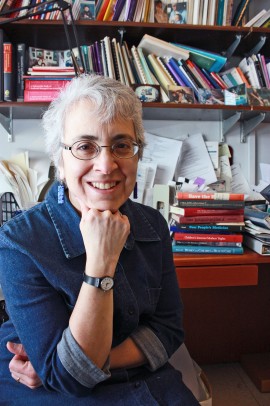University Scholar Arden Handler
The University Scholars Program, now in its 36th year, honors faculty members for superior research and teaching, along with great promise for future achievements. The award provides $15,000 a year for three years.
Arden Handler
Professor, Community Health Sciences
Director, Center of Excellence in Maternal and Child Health
Years at UIC: 34
What are your research interests?
My research career reflects my long-standing commitment to reducing inequities and improving the health of women, pregnant and postpartum persons, children and families. My specific interest is the exploration of factors that increase the risk for racial and economic inequities in adverse pregnancy outcomes and examining ways in which the health care delivery system, particularly how prenatal care, postpartum care, and preconception/interconception/well-woman care can ameliorate these risks and reduce inequities.
How did you become interested in these topics?
I became interested in these topics first as a young activist in the Women’s Health Movement in the late 1970s and then through a series of positions in public health practice focused on women’s health, as well as maternal and infant health.
What do you teach?
Currently, I teach Maternal and Child Health Inequities and Responses Part 1 (focus on women, pregnant and postpartum persons, and infants), and Reproductive and Perinatal Health. For 31 years, I also taught MCH Policy and Advocacy.
How do you balance teaching and research?
I typically teach two courses per year. Because the content of the courses I teach is directly related to my research interests, my research directly influences the content and readings in my courses. Likewise, the content provided in the courses, including the lectures I develop, the readings I select, and the guest speakers who join the classes, all contribute to strengthening and expanding my research agenda.
What’s your advice to students who want to focus their future careers on research?
For me, it has been critically important to stay grounded in the real world and to lead and participate in research that not only describes problems or relationships, but also to engage in research that points the way towards solutions, particularly those aimed at systems and policy change.

